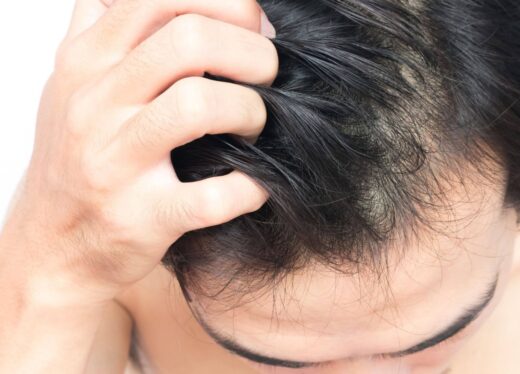Emotional stress is different from physical stress and can impact the body in various ways, both internally and externally. One of the most noticeable effects it can have is hair loss.

Can Stress Lead to Hair Loss, and Will Hair Regrow?
There is strong evidence that stress can contribute to hair loss. However, this type of hair loss is generally not permanent, and hair usually starts growing back once the stress subsides. In most cases, hair begins to regrow within approximately six months after the stressful event has passed.
It is crucial to distinguish between emotional and physical stress when discussing hair loss. While both types can lead to shedding, physical stressors—such as serious illness, childbirth, or extreme dietary changes—tend to be more easily managed compared to emotional stress.
Does Emotional Stress Trigger Hair Loss?
Experiencing emotional distress—such as the loss of a loved one, high-pressure work environments, financial struggles, or the challenges of parenting—can result in hair loss. These psychological pressures can disturb hormone levels, leading to hair thinning, primarily through a condition known as telogen effluvium.
During intense emotional turmoil, telogen effluvium accelerates the hair cycle, causing more strands to shed than usual. Although it may be alarming, this condition is temporary, and hair generally starts to grow back within two to three months.
Additionally, emotional stress can contribute to the development of alopecia areata. This condition manifests as sudden bald patches on the scalp and, in severe cases, can lead to total hair loss. Although hair typically regrows over time, some individuals may require treatment to stimulate regrowth.
Does Stress Influence DHT Levels?
While stress is a known contributor to hair loss, it does not necessarily increase dihydrotestosterone (DHT) levels—the hormone commonly linked to male and female pattern baldness. Instead, stress-related hair loss occurs through other biological pathways, such as nutrient redistribution, where the body prioritizes essential functions over hair growth.
A study conducted on army recruits subjected to sleep deprivation—an extreme physical and emotional stressor—revealed that their testosterone levels declined, yet their sex hormone-binding globulin (SHBG) levels, which include DHT, remained unchanged. This suggests that stress-induced hair loss occurs independently of DHT fluctuations.
Can Heartbreak Lead to Hair Loss?
Among various emotional stressors, heartbreak is one of the most common causes of stress-related hair loss. The duration of hair loss varies depending on the individual, but even after the emotional distress subsides, it can take an additional seven to eight months for hair to fully regrow.
The reason behind this is that heartbreak-related stress pushes hair follicles prematurely into the resting phase, preventing them from producing new growth. As a result, shedding occurs, and the cycle repeats if the emotional trauma remains unresolved.
Once the underlying emotional distress is addressed, hair regrowth can begin. However, full recovery requires time, as all the hair that entered the resting phase must first shed before new growth can occur.
Can PTSD Contribute to Hair Loss?
Individuals suffering from post-traumatic stress disorder (PTSD) often experience prolonged elevations in stress hormones, which can hinder hair regrowth. Since the body remains in a chronic state of “fight or flight,” energy and nutrients are redirected toward essential survival functions, leaving hair follicles deprived of the resources they need to sustain hair growth.
People with PTSD often exhibit hypersensitivity to external stimuli, such as loud noises or abrupt changes in lighting, triggering heightened distress. The persistent activation of the fight-or-flight response not only affects emotional well-being but also alters hormonal balance, preventing hair from regenerating effectively.
Since hair follicles are classified as non-essential structures by the body, they are often neglected during times of prolonged stress, ultimately leading to excessive shedding and potential bald patches.
Can Anxiety Cause Hair Loss?
Although anxiety itself does not directly lead to hair loss, the stressful situations associated with anxiety can be a contributing factor. The extent of hair loss largely depends on the severity and frequency of stress exposure.
Anxiety is a natural reaction to perceived threats, but for individuals suffering from anxiety disorders, the response is so intense that it interferes with daily life. As with other emotionally stressful conditions, anxiety can trigger telogen effluvium or alopecia areata, both of which lead to noticeable hair shedding.
If you suspect that emotional stress is responsible for your hair loss, seeking professional guidance is advisable. A doctor may recommend consulting a therapist or counselor to address the root cause of stress. By effectively managing emotional well-being, hair regrowth can be supported, and further hair loss can be prevented.
Erdem Hospital: The Best Solution for Hair Loss

Hair loss can impact confidence and self-image, but Erdem Hospital offers the ultimate solution with cutting-edge treatments and expert care.
Why Erdem Hospital?
✅ Advanced Hair Transplant Techniques – FUE, DHI, and Sapphire FUE ensure natural, long-lasting results.
✅ Expert Medical Team – Highly experienced specialists provide personalized treatments.
✅ State-of-the-Art Technology – The latest innovations for safe, effective hair restoration.
✅ Comprehensive Care – From diagnosis to post-treatment support, ensuring the best outcome.
For those seeking the most reliable and effective hair loss treatment, Erdem Hospital is the top choice!